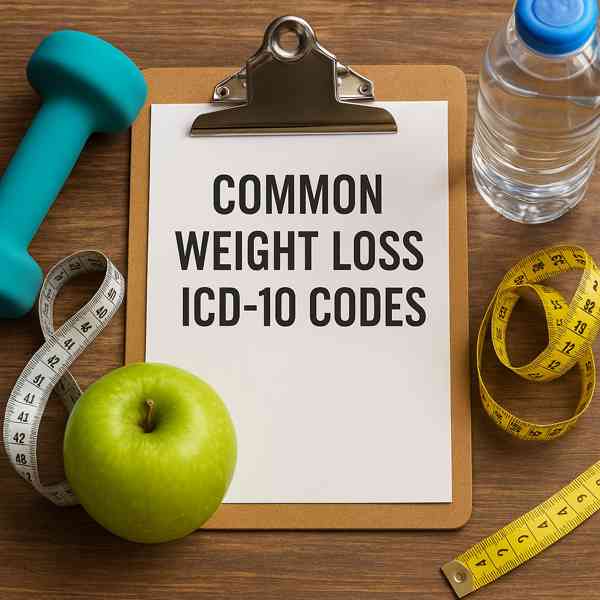Accurate ICD-10 Coding for Weight Loss
Accurate ICD-10 Coding for Weight Loss
Blog Article

Whether you’re a medical professional, billing specialist, or patient navigating claims, understanding weight loss ICD-10 codes is key.
In this article, we’ll break down what ICD-10 codes are used for weight loss, how to apply them, and what you should know for accurate recordkeeping.
ICD-10 Basics Explained
It’s a standardized system used worldwide for classifying medical conditions and diseases.
Each diagnosis is assigned a unique code, which is used for:
- Submitting claims to health providers
- Tracking public health trends
- Communicating diagnoses between professionals
Which ICD-10 Codes Apply to Weight Loss?
Choosing the correct code depends on the cause, severity, and context of the weight loss.
Key codes visit include:
- Used when weight loss is unexplained or unintentional
This code applies when a patient loses a significant amount of weight without trying, often due to illness.
- Z71.3 – Dietary Counseling and Surveillance
Often applied in cases involving nutritional intervention or guidance.
- Z72.4 – Inappropriate Diet and Eating Habits
- Used in contrast to weight loss when monitoring obesity treatment progress
- E43 – Unspecified Severe Protein-Calorie Malnutrition
Clinical Use of R63.4
Use R63.4 when:
- The patient reports significant, unintentional weight loss
- Weight loss is a primary symptom in evaluation
- Used as part of diagnostic workup
Tips for Correct ICD-10 Weight Loss Usage
To avoid claim denials or coding errors:
- This determines whether R63.4 is appropriate
- Document related symptoms or conditions
- Use supplemental Z-codes for counseling or screenings
- Avoid using obesity and weight loss codes together unless clinically justified
Supporting Preventive Care Through Proper Codes
If you’re coding for a structured weight loss program or health coaching, consider using these Z-codes:
- Z71.3 – Dietary Counseling
- Z76.89 – Person Encountering Health Services for Other Reasons
- Z13.21 – Encounter for Nutritional Screening
These codes can support insurance claims for wellness, prevention, and obesity treatment plans.
Use ICD-10 Effectively in Clinical Settings
Whether you’re coding for unintentional weight loss or part of a managed care plan, accuracy matters.
To summarize:
- R63.4 = Unintentional weight loss
- Great for structured programs
- E-codes = Nutritional or medical malnutrition
Always consult coding guidelines and payer policies when applying ICD-10 codes. Report this page